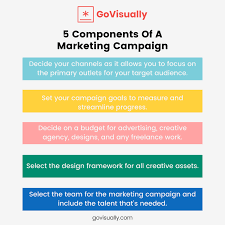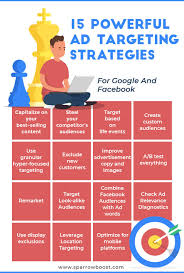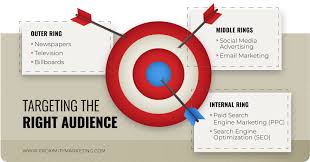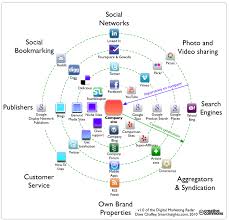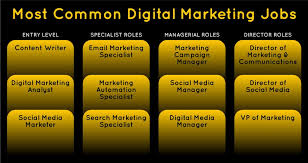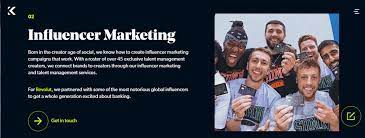Crafting Compelling Content: The Role of a Digital Marketing Content Creator
The Role of a Digital Marketing Content Creator
In the fast-paced world of digital marketing, content is king. And at the heart of creating compelling and engaging content lies the digital marketing content creator. This role is crucial in helping businesses connect with their target audience, drive traffic to their websites, and ultimately convert leads into customers.
A digital marketing content creator is responsible for developing a wide range of content across various digital platforms. From blog posts and social media updates to email campaigns and website copy, they play a key role in shaping a brand’s online presence.
One of the primary tasks of a digital marketing content creator is to understand the target audience and create content that resonates with them. They need to have a deep understanding of the brand’s voice, values, and messaging to ensure consistency across all platforms.
Moreover, a digital marketing content creator needs to stay abreast of the latest trends in digital marketing and content creation. This includes knowing how to optimise content for search engines (SEO), understanding social media algorithms, and utilising data analytics to measure the performance of their content.
Effective storytelling is another essential skill for a digital marketing content creator. By crafting narratives that engage and inspire their audience, they can create meaningful connections that drive brand loyalty and customer engagement.
Overall, the role of a digital marketing content creator is dynamic and multifaceted. It requires creativity, strategic thinking, technical skills, and a passion for creating impactful content that drives results for businesses in today’s competitive digital landscape.
Essential Insights: 7 Key Questions About Digital Marketing Content Creators
- What does a digital marketing content creator do?
- What skills are required to become a successful digital marketing content creator?
- How important is storytelling in digital marketing content creation?
- What tools and software are commonly used by digital marketing content creators?
- How can a digital marketing content creator optimise content for search engines (SEO)?
- What metrics should a digital marketing content creator track to measure the performance of their content?
- How can businesses benefit from hiring a digital marketing content creator?
What does a digital marketing content creator do?
A digital marketing content creator plays a crucial role in developing engaging and relevant content across various digital platforms to help businesses connect with their target audience, drive traffic, and convert leads into customers. They are responsible for understanding the brand’s voice and values, crafting compelling narratives, staying updated on industry trends, optimising content for search engines, and utilising data analytics to measure performance. By creating content that resonates with the target audience and aligns with the brand’s messaging, digital marketing content creators contribute significantly to enhancing brand visibility, engagement, and ultimately driving business growth in the competitive online landscape.
What skills are required to become a successful digital marketing content creator?
To become a successful digital marketing content creator, a diverse set of skills is essential. Firstly, strong writing abilities are crucial, including the capacity to craft engaging and compelling content tailored to different platforms and audiences. Additionally, a solid grasp of SEO principles and the ability to optimise content for search engines is important for maximising visibility online. Creativity plays a key role in developing innovative and impactful content that resonates with viewers. Furthermore, proficiency in data analysis and an understanding of digital marketing tools are vital for measuring content performance and making informed decisions. Lastly, adaptability, excellent communication skills, and a passion for staying updated on industry trends are essential traits that can help aspiring individuals thrive in the dynamic field of digital marketing content creation.
How important is storytelling in digital marketing content creation?
Storytelling plays a pivotal role in digital marketing content creation, serving as a powerful tool to captivate audiences and forge emotional connections with brands. By weaving compelling narratives into content, digital marketing content creators can engage and resonate with their target audience on a deeper level, making the brand more memorable and relatable. Effective storytelling humanises the brand, evokes emotions, and drives meaningful interactions that can lead to increased brand loyalty and customer engagement. In today’s competitive digital landscape, the ability to craft authentic and engaging stories is essential for creating impactful content that stands out and drives results.
What tools and software are commonly used by digital marketing content creators?
Digital marketing content creators often rely on a variety of tools and software to streamline their workflow and enhance the quality of their content. Some commonly used tools include content management systems (CMS) like WordPress for creating and publishing blog posts, social media management platforms such as Hootsuite or Buffer for scheduling and analysing social media posts, graphic design tools like Canva or Adobe Creative Cloud for creating visually appealing graphics, and analytics tools such as Google Analytics or SEMrush for tracking the performance of their content. These tools help digital marketing content creators effectively manage their tasks, optimise their content for better results, and stay ahead in the ever-evolving digital landscape.
How can a digital marketing content creator optimise content for search engines (SEO)?
To optimise content for search engines (SEO), a digital marketing content creator can employ various strategies. Firstly, conducting keyword research to identify relevant and high-traffic keywords that align with the content’s topic is crucial. Integrating these keywords naturally throughout the content, including in titles, headings, meta descriptions, and body copy, helps search engines understand the relevance of the content to user queries. Additionally, creating high-quality and engaging content that provides value to readers can improve user engagement metrics, such as time on page and low bounce rates, which are favourable for SEO rankings. Utilising internal and external links strategically within the content can also enhance SEO performance by improving website authority and credibility. Lastly, staying updated on SEO best practices and algorithm changes is essential for adapting strategies to ensure optimal visibility in search engine results pages.
What metrics should a digital marketing content creator track to measure the performance of their content?
When it comes to measuring the performance of their content, a digital marketing content creator should track a variety of key metrics to gauge the effectiveness of their efforts. Some important metrics to consider include website traffic, engagement rates (such as likes, shares, comments), conversion rates, bounce rate, time spent on page, click-through rate (CTR), and social media reach and impressions. By monitoring these metrics closely, a digital marketing content creator can gain valuable insights into how well their content is resonating with the target audience, identify areas for improvement, and make data-driven decisions to optimise future content strategies for better results.
How can businesses benefit from hiring a digital marketing content creator?
Businesses can benefit significantly from hiring a digital marketing content creator in several ways. Firstly, a skilled content creator can help businesses enhance their online presence and visibility by producing high-quality and engaging content that resonates with their target audience. This can lead to increased website traffic, improved brand awareness, and ultimately, higher conversion rates. Additionally, a digital marketing content creator can help businesses stay relevant in a competitive market by creating fresh and compelling content that sets them apart from their competitors. By leveraging the expertise of a content creator, businesses can effectively communicate their brand message, build credibility, and establish lasting relationships with their customers through strategic storytelling and engaging digital campaigns.




